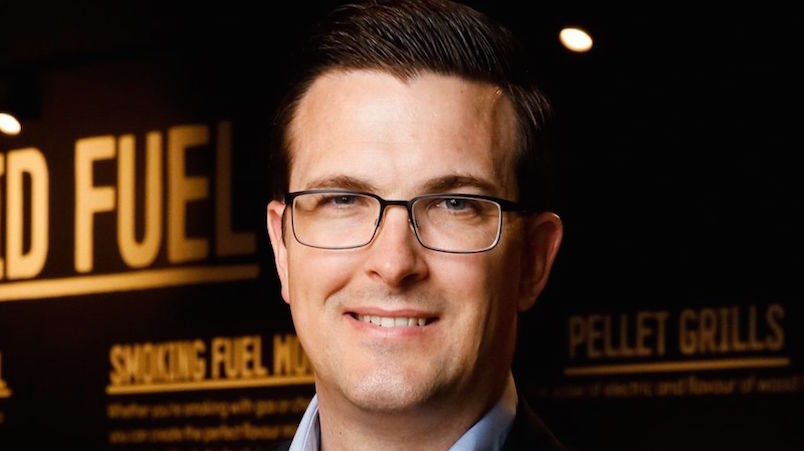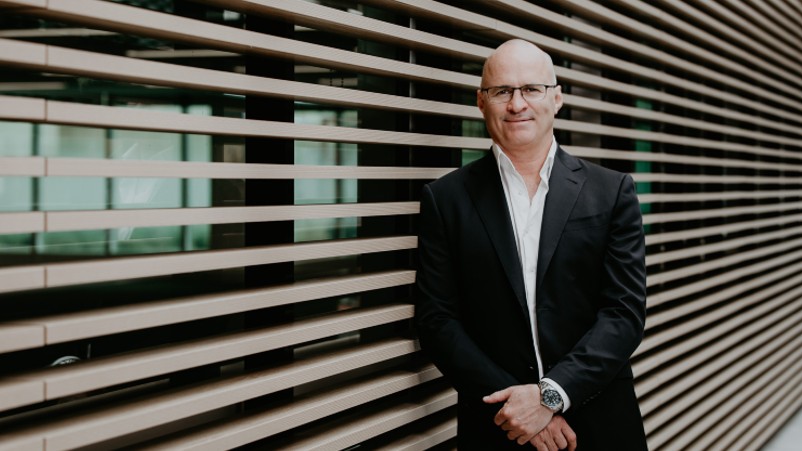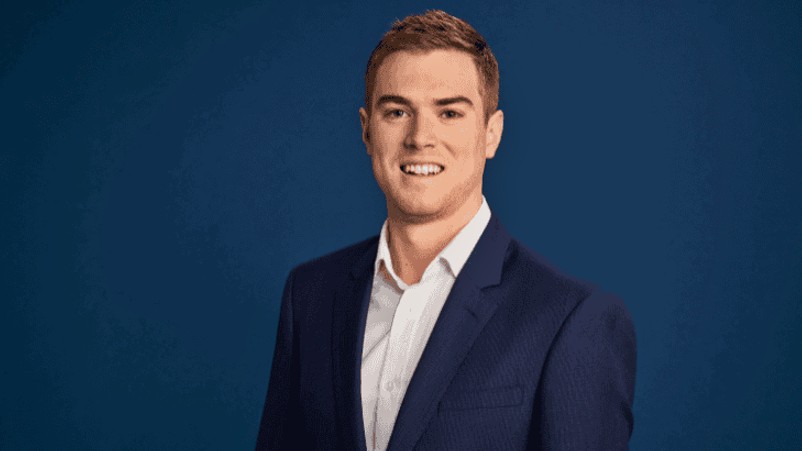The seven-year sales cycle: As ecom boom wanes, Barbeques Galore boss opens new stores, formats; backs loyalty, marketplaces to power growth, dials down performance spend

Barbeques Galore CEO, Angus McDonald: New store formats delivering better bang for buck; pushing into adjacent product categories key to online growth. More home-working also presents upside.
Ecom is slowing following a Covid boom and Barbeques Galore plans to open 13 new stores. CEO Angus McDonald said its revamped retail formats are outperforming legacy outlets as it pushes into adjacent products to drive growth. That strategy is being mirrored online – but at a much broader level, with the firm now selling everything from vinyl records to yoga mats in a bid to see where demand lies. Meanwhile, a martech stack overhaul is driving a loyalty and personalisation push as the retailer aims to build deeper first party data sets while boosting returns and reducing "over-reliance" on performance media.
What you need to know:
- Barbeques Galore CEO Angus McDonald sees ecom growth slowing from a pandemic peak.
- The firm is opening new stores to serve demand and using loyalty, personalisation and broader product range to drive omnichannel gains.
- While households say they are belt-tightening, McDonald said that has not yet hurt category; post-Covid flexible working patterns mean more barbecuing time.
- After overhauling martech stack, former Super Retail Group exec says strategy trumps tech – and CEOs should drive retail transformation projects.
I expect this year we will see some normalisation of sales back to stores, but the ecommerce business will still be substantially larger than it was pre-Covid.
Barbeques Galore CEO Angus McDonald is backing new stores and new formats, click and collect, loyalty, personalisation and curated marketplaces to sell more product to customers who may not buy another barbeque for a decade. The firm, owned by private equity firm Quadrant, is also reducing “over-reliance” on performance media and recycling that budget into brand and owned channels to drive growth.
McDonald spent 11 years at Super Retail Group, launching its click and collect business before moving up the food chain. He took the CEO gig at Barbeques Galore in 2019 with “a strong mandate to reset the business for where we thought the future of retail was going”, i.e. omnichannel. Pre-pandemic the firm implemented a new Enterprise Resource Planning (ERP) system before working through its tech stack just as the Covid boom kicked off.
Since lockdowns ended, McDonald said there has been an ecom “correction”, though online sales are “consistently a double digit percentage” of business. He thinks underlying growth will continue, albeit at pre-pandemic rates: “I expect this year we will see some normalisation of sales back to stores, but the ecommerce business will still be substantially larger than it was pre-Covid.”
Despite consumer researchers finding cost of living concerns are causing households to tighten belts, McDonald said there is still a “tailwind” within the category – flexible working effectively means more time for barbecues. “So we remain pretty optimistic about the opportunity over the next couple of years.”
More stores, ranges
McDonald has also overseen a major store overhaul, changing formats and strategy in a bid to boost returns per square metre. “We’re seeing a real difference in performance between our new and old stores,” he said, with the firm set to open four more outlets by the end of the financial year, taking it to 91 stores, aiming to reach 100 in the medium term.
The physical stores now stock a greater range of adjacent products and the “curated” approach is being mirrored online via marketplaces both to sell consumables – fuels, rubs, accessories – and to underpin forays into new territory.
The ecom platform now sells everything from pet supplies to home security to vinyl, turntables, home gyms and yoga mats. McDonald said the firm had no plans to compete with broader marketplaces – the likes of Kogan or Catch. But the broader range “is identifying growth opportunities that we may not have recognised, and to test and validate them for the future … in the places that we’ve got license to play,” McDonald told Mi3.
“The marketplace integration gives us the ability to bring together a much broader assortment of products around our core categories.”
Loyalty, personalisation
Loyalty and personalisation are also pillars of marketing strategy following its martech overhaul (McDonald was speaking on the sidelines of Salesforce’s Retail and Consumer Goods Summit in Melbourne).
Late last year the firm launched the BBQ Legends Club, touting free online BBQ courses, member only deals, daily tips, tricks and the like. While early days, McDonald said it’s moving the needle in terms of direct customer connections.
The resulting loyalty data set is also reducing reliance on some “increasingly expensive” paid channels for acquisition while enabling the firm to get to grips with personalisation: Given that the average sales cycle for a top end barbecue is “seven to ten years”, a more targeted approach is required, McDonald added, to avoid pushing products that customers already own and sell them more of the stuff they need. “All of those fuels, rubs, sauces, comestibles … they’re really important areas of growth”.
Strategy trumps tech
After overhauling the 45-year old retailer’s systems, McDonald said there’s a universal lesson for any business: Don’t start with the tech.
“Culture and strategy of the organisation is by far the most important part. Often these conversations are very focused on the technology that's selected. But actually making sure that there's clarity of strategy and direction for the organisation – that the team can understand, support and therefore embrace those changes in the organisation – is in fact more important than the technology itself.”
McDonald thinks that strategy has to come from the top.
“It is really important that as a CEO you've got a really strong appreciation for how important these areas are and how transformative they are for the future of retail. That's not the sort of thing that you can outsource to partners outside the organisation or delegate. It actually needs to be sponsored and supported by the CEO – it’s really important for me to take an active interest in this area, given how critical it is for the future of our business.”


